2025 Yamaha YXZ1000R Buyer’s Guide

$20,899 MSRP
• Manual sequential gearbox
• inline triple engine
• only 1,567 lbs
The Manual Side-by-Side
You may not know this, but the side-by-side world has an honest-to-god, six-on-the-floor manual side-by-side. The 2025 Yamaha YXZ 1000R comes equipped with a sequential manual transmission available with a traditional foot clutch.
Sure, we have side-by-sides like the Maverick R and Honda Talon, both of which have DCTs with actual gears, but they don’t have a manual clutch. The YXZ actually has three pedals on the floor. If you don’t want to worry about working a clutch, you can opt for the Sport Shift trim, which only has two pedals.
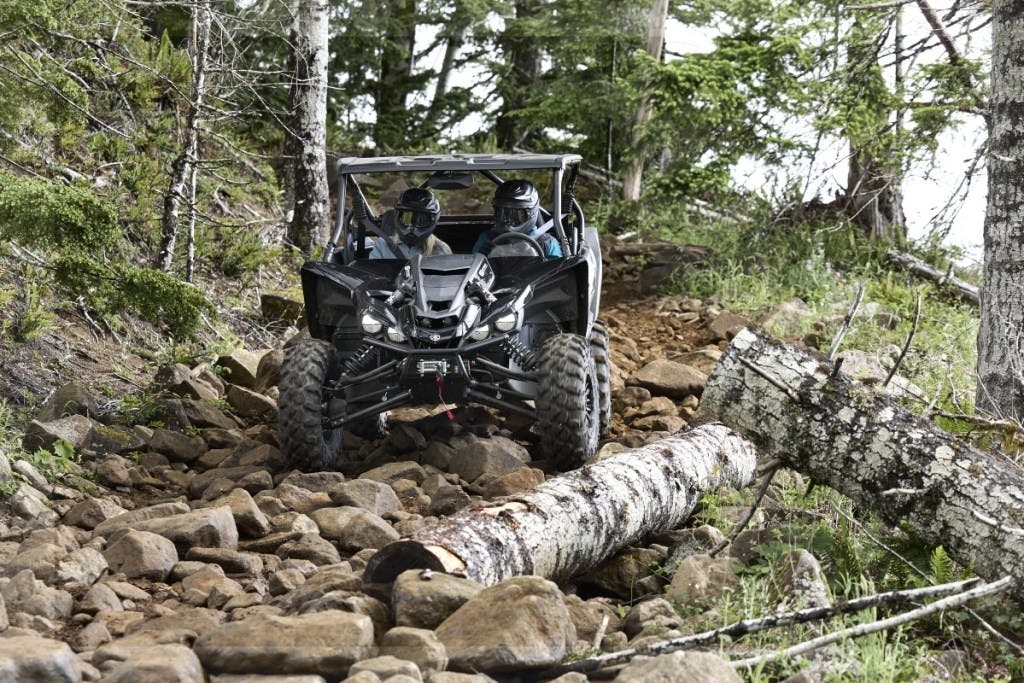
While the YXZ1000R is starting to show its age, it’s still a one-of-a-kind side-by-side that deserves your attention. An inline-triple, manual transmission, and Fox shocks are nothing to laugh at. You can still have as much fun in this as you can in newer side-by-sides, and you can save a few bucks while you’re at it.
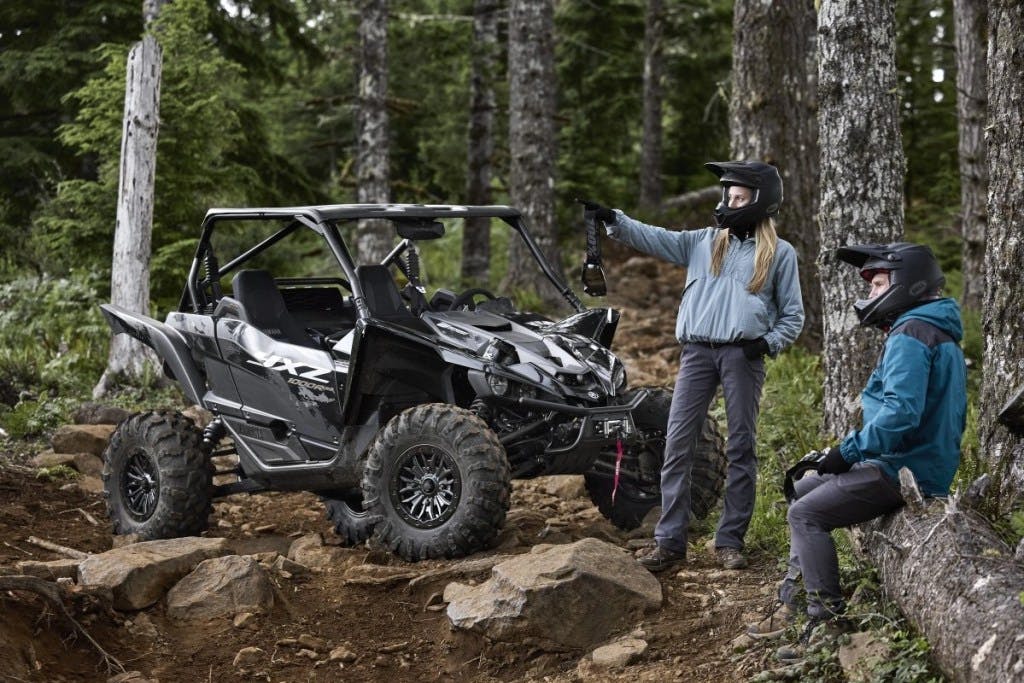
How much power does it make?
Like every other Yamaha on the market, big blue keeps power numbers for the YXZ1000R private. Online consensus says that it’s around 112, but take that with a grain of salt. It does, however, make that power through a 998cc inline triple.
That power makes it to the wheels through a manual, six-speed sequential transmission. With an option of two or three pedals, you can choose just how you want to ride. There’s no waiting for a CVT to spin up and no changing belts on the side of the trail. Whether is rock-crawling or high-speed desert ripping, you always have the right gear for the job.
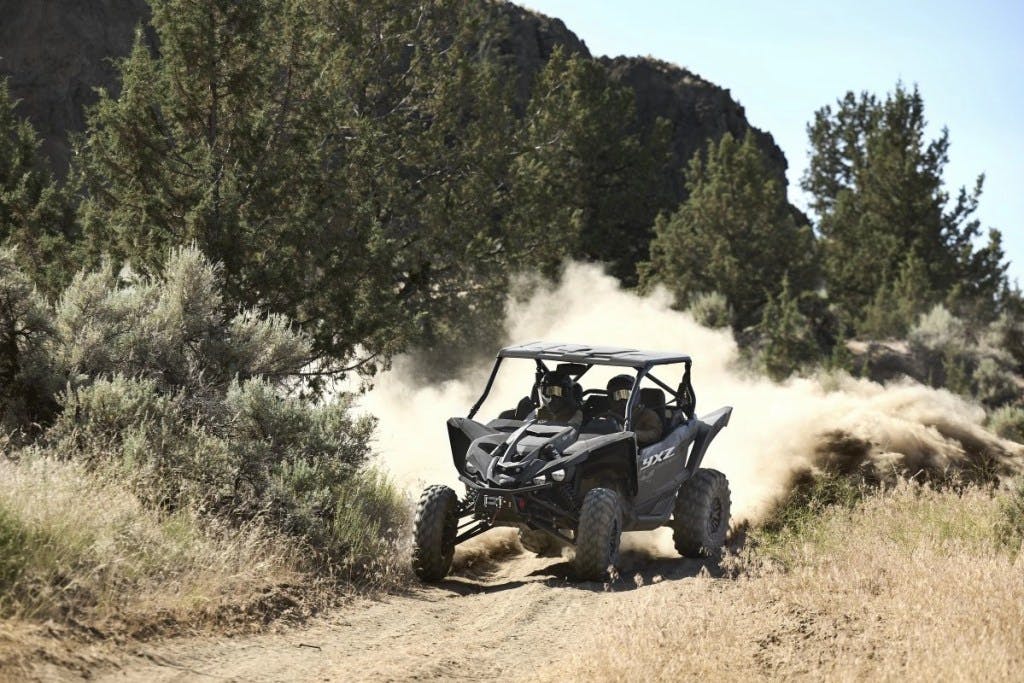
What makes it special?
The six-speed manual transmission is truly one-of-a-kind. We know, we’ve already talked about it a lot, but it’s hard not to when a rig has something this cool. And for high-speed riding, the YXZ1000R features a 4WD limited-slip mode. For rock-crawling and low-speed climbs, there’s a full rear diff lock.
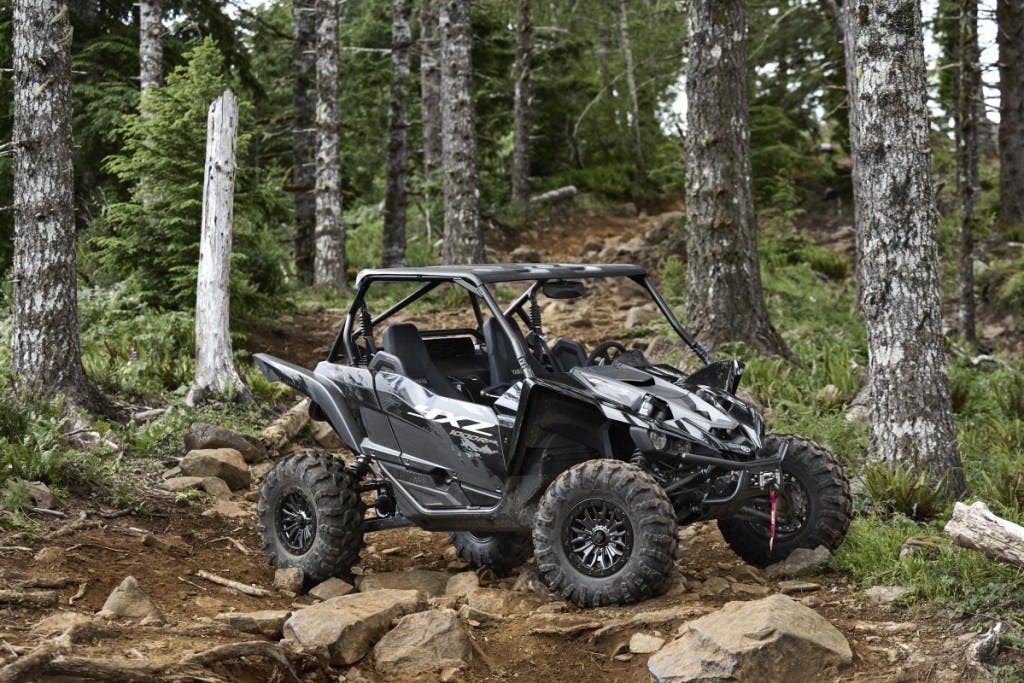
Why do I want it?
If you’re someone who wants complete control of your rig at all times, this is your girl. Or, you’re like us and miss the days of Jeeps and FJs. While this is far from the same, you still get that old-school wheeling feeling while using a clutch.
And of course, if you want high-speed dune ripping while banging through gears, it’s hard to go wrong with the YXZ1000R.
Worried about breaking the bank? The most expensive model hits the dealer floor at $23,699. That’s nearly unheard of for sport side-by-sides.
Why don’t I want it?
It’s no secret that the YXZ1000R is old. It debuted in 2016 and really hasn’t had a meaningful update since then. Even Yamaha seems to have forgotten about it, as it’s rarely in any promotional content.
That means that you’re getting an outdated rig that underperforms compared to anything else on the market. Polaris has about four side-by-sides that beat the YXZ1000R, and Can-Am has around the same. There’s just not a ton of reasons to go with the YXZ100R over other sport rigs, unless the manual transmission is the only thing you’re looking for. Even then, the DCTs from the Honda Talon and Can-Am Maverick R are both fantastic.
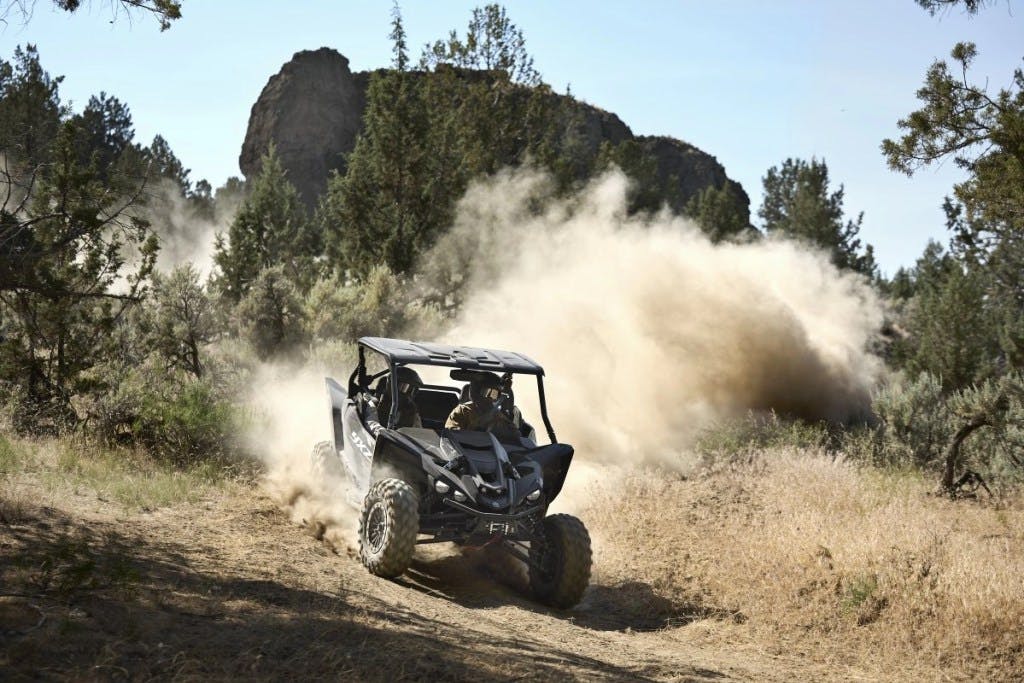
What trim should I get?
The 2025 YXZ1000R comes in three trims, the base model, the SS, and the SS XT-R. Both SS models feature auto-shift technology, removing the manual clutch. They work like a DCT, where all you have to do is flip a paddle to change gears.
The only trim with the third pedal is the base model YXZ1000R. Sadly, the XT-R is not available with the manual clutch.
Our immediate instinct is third pedal no matter what. Let’s be honest, the main appeal of the YXZ1000R is that manual gearbox. If I wanted it to shift for me, I’d just go buy a Talon or a Maverick R. The base model, whether you get it with or without the third pedal, is the cheapest at $20,899. The SS XT-R comes in at $23,699.
The XT-R package adds a Warn winch, upgraded skid plate, a roof, beadlock wheels and Maxxis Carnivore tires, a center-mount mirror, and tons of extra lighting.
If I like this… what else should I look at?
If you’re just looking for the feeling of a manual side-by-side with actual gears, check out the Honda Talon or the Can-Am Maverick R. The Maverick R can get expensive, though. If you don’t care about a full desert-ripper, the Mahinda Roxor also comes with a manual. Other sport rigs in the YXZ1000R’s class include the RZR XP, Maverick X3, and Kawasaki KRX.
2025 Yamaha YXZ1000R Specs
Length: 123.9 in.
Width: 64.4 in.
Height: 68 in.
Wheelbase: 90.6 in.
Claimed Dry Weight: 1,567 lbs
Engine: Inline-Triple
Displacement: 998cc
Transmission: Manual foot clutch; 6-speed sequential
Claimed Power: N/A
Claimed Torque: N/A
Fuel System: Yamaha Fuel Injection (YFI)
Steering: EPS
Drivetrain: 2WD, 4WD limited slip, full diff-lock 4WD
Front Suspension: Independent double wishbone w/anti-sway bar, fully adjustable Fox 2.5 Podium RC2 Dual Spring shocks w/adjustable crossover; 16.2-in travel
Rear Suspension: Independent double wishbone w/anti-sway bar, fully adjustable Fox 2.5 Podium RC2 Dual Spring shocks w/adjustable crossover; 17.0-in travel
Front Brakes: Dual hydraulic discs
Rear Brakes: Dual hydraulic discs
Wheels F/R: 14 in. aluminum
Tires F/R: 29 x 9R-14 Maxxis Bighorn/ Maxxis Carnage (front), 29 x 11R-14 Maxxis Bighorn/ Maxxis Carnage (rear)
Bed Capacity: 300 lbs
Towing Capacity: N/A
Seating Capacity: 2
Ground Clearance: 12.2 in.
Fuel Capacity: 9.0 gal
